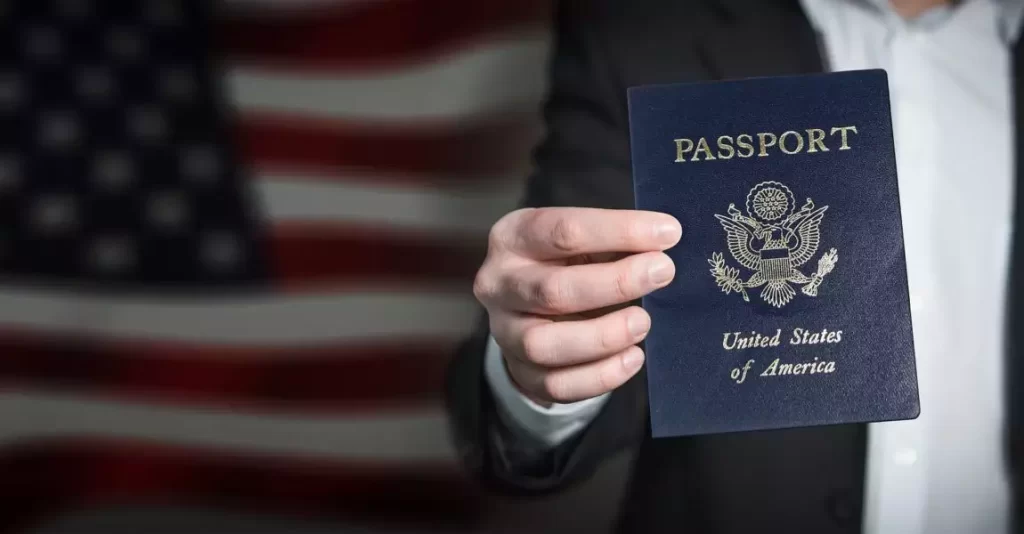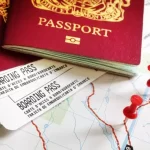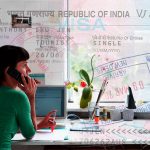Are you a Kiwi dreaming of embarking on an exciting journey to the land of opportunity? Well, get ready to dive into our comprehensive guide that unravels the world of US visas available for New Zealanders! From work and study visas to travel permits and investment opportunities, we’ve got you covered. So, join us as we navigate through this maze of possibilities and help you find the perfect path towards your American dream. Let’s unlock those doors together! US VISA FOR New Zealand CITIZENS
Introduction to US Visas for New Zealand Citizens
For New Zealanders, traveling to the United States is an exciting and often highly anticipated experience. Whether it’s for business or pleasure, there are various types of visas available for New Zealand citizens looking to enter the US. It is important to understand the different visa options and their requirements in order to determine which one is best suited for your specific purpose of travel.
In this section, we will provide a brief overview of the different types of US visas available for New Zealand citizens. These include non-immigrant visas and immigrant visas.
Non-Immigrant Visas: Non-immigrant visas are temporary visas that allow individuals to enter the United States for a specific purpose such as tourism, study, work or business-related activities. These visas are usually valid for a set period of time and do not lead to permanent residency in the US.
1. B-1/B-2 Visitor Visa: The B-1/B-2 visitor visa is designed for individuals who wish to visit the United States temporarily for business (B-1) or pleasure/tourism (B-2). This visa allows you to stay in the US for up to six months and can be extended if needed.
2. F/M Student Visa: The F/M student visa is intended for foreign students who wish to pursue academic studies at an accredited institution in the United States. To obtain this visa, you must have been accepted by a school approved by the Student Exchange Visitor Program US VISA FOR Poland CITIZENS
Understanding the Visa Application Process
The visa application process can be overwhelming and confusing, especially for individuals who are applying for a US visa for the first time. In this section, we will discuss the steps involved in the visa application process and provide tips on how to navigate through it successfully.
1. Determine your eligibility: Before starting the application process, it is important to determine if you are eligible for a US visa. The eligibility criteria vary depending on the type of visa you are applying for. For example, tourist visas have different requirements than work visas or student visas.
2. Choose the right type of visa: As mentioned in previous sections, there are several types of US visas available for New Zealanders. It is crucial to choose the correct type of visa that aligns with your purpose of travel. Each visa category has its own set of requirements and application procedures, so make sure to research thoroughly before making a decision.
3. Complete the online application form: All non-immigrant US visas require applicants to complete an online application form (DS-160). This form collects personal information such as name, date of birth, address, employment history, and travel plans.
4. Pay the required fees: The next step is to pay the non-refundable visa application fee and any other applicable fees such as biometrics or expedited processing fees. These fees can vary based on the type of visa you are applying for.
Non-immigrant Visas:
Non-immigrant visas are temporary visas that allow individuals to enter the United States for a specific purpose and period of time. These visas are typically issued for a variety of reasons such as tourism, business, education, or temporary work assignments.
1. B-2 Tourist Visa
The B-2 tourist visa is designed for individuals who wish to visit the United States for leisure purposes such as vacationing, sightseeing, or visiting family and friends. It allows New Zealanders to stay in the US for up to 6 months at a time and can be extended if needed.
To obtain this visa, applicants must demonstrate strong ties to their home country and provide evidence of sufficient funds to cover their expenses during their stay in the US. They must also have a valid passport and show that they intend to return to New Zealand after their visit.
2. F-1 Student Visa
The F-1 student visa is required for New Zealanders who plan on pursuing academic studies in the US. This visa allows students to study at an accredited university or college in the US for the duration of their program.
In order to obtain this visa, applicants must first be accepted into an approved educational institution and provide proof of financial support. They must also demonstrate strong ties to their home country and have a clear intention of returning after completing their studies.
Tourist Visa (B1/B2)
The United States is a popular travel destination for people from all over the world, including New Zealand. If you’re a New Zealander planning to visit the US for tourism or business purposes, you will need to apply for a tourist visa (B1/B2). This type of visa allows you to enter the US temporarily and engage in activities such as sightseeing, visiting friends and family, attending conferences or meetings, and conducting business negotiations.
To obtain a B1/B2 tourist visa, you will need to go through the application process at the US Embassy or Consulate in New Zealand. Here are some important things to keep in mind when applying for this type of visa:
1. Eligibility criteria: To be eligible for a B1/B2 tourist visa, you must prove that your trip is temporary and not intended to immigrate to the United States. You must also have enough funds to cover your expenses during your stay and show strong ties to your home country, such as employment, property ownership or family responsibilities.
2. Application process: The first step is completing the online nonimmigrant visa application form (DS-160) and paying the required fee. You will then need to schedule an interview appointment at the nearest US Embassy/Consulate. During the interview, you will be asked about your purpose of travel and other relevant information.


